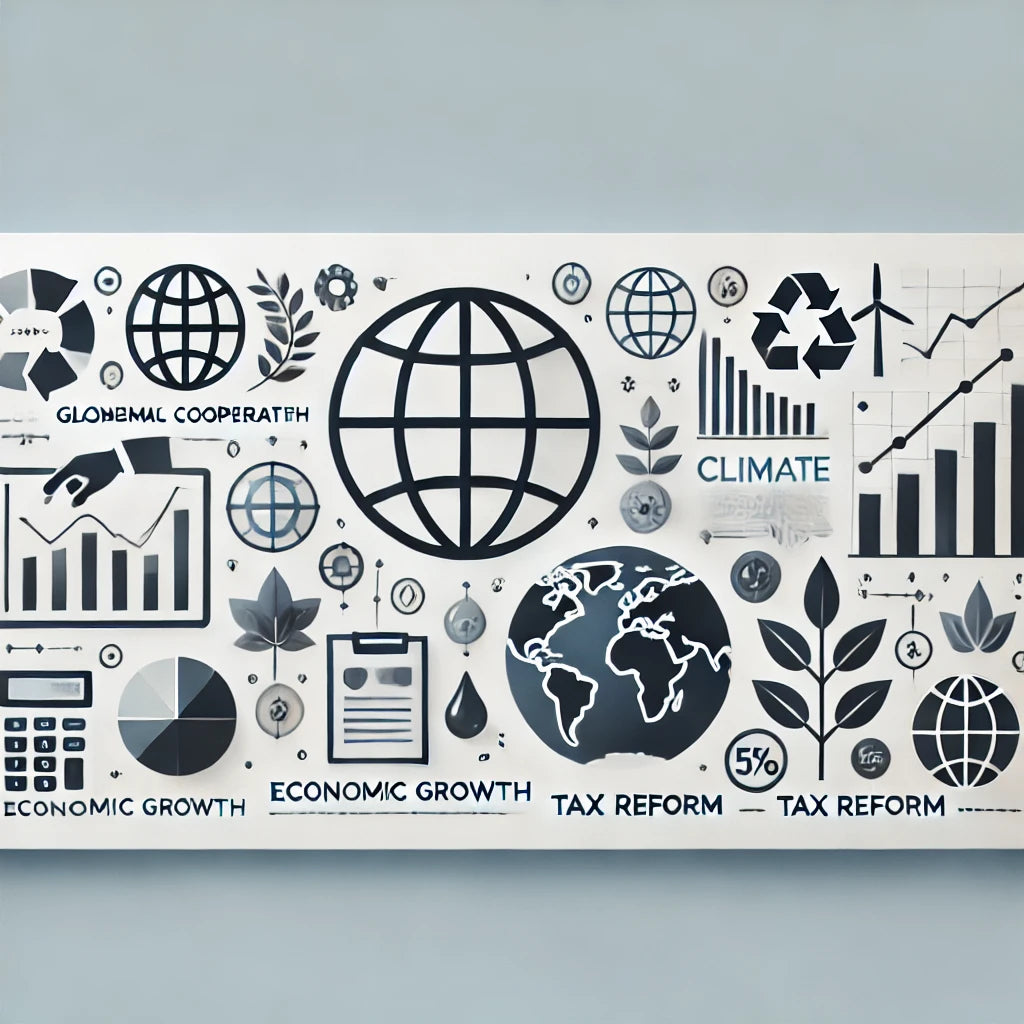As global challenges become more complex and interconnected, international organizations like the Organisation for Economic Co-operation and Development (OECD) play a crucial role in fostering collaboration and crafting evidence-based policies. Established in 1961, the OECD brings together 38 member countries, including Canada, to address economic, environmental, and social issues.
Key Functions and Successes
One of the most significant aspects of the OECD is its capacity for data collection, analysis, and policy recommendations. The organization produces over 500 reports annually and serves as a vital knowledge hub for countries and institutions. These reports directly influence policy debates at both national and international levels. For instance, the OECD’s Global Minimum Corporate Tax Agreement—aimed at implementing a 15% minimum tax rate on multinational corporations—is a prime example of how OECD-driven initiatives can shape the global economic landscape. This agreement addresses tax evasion issues arising from the digital economy and was adopted by over 130 countries, though some major players like the U.S. and China remain holdouts.
Another notable success has been the OECD’s role during the COVID-19 pandemic. The organization offered critical guidance to help countries navigate the economic impact of the crisis, providing regular economic outlooks that enabled governments to formulate effective recovery strategies. The ability to respond swiftly to global challenges like the pandemic illustrates the OECD's relevance in today's world.
The advancement of digital economy policies also stands out as an OECD success. The OECD was instrumental in setting the first intergovernmental standards on Artificial Intelligence (AI) in 2019, shaping the digital policies of its member countries.
Influence on Climate Policy
The OECD has significantly impacted global climate action, with countries like Canada adopting OECD recommendations on carbon pricing. In 2016, Canada implemented a Pan-Canadian Framework for carbon pricing, which requires provinces to adopt their own carbon pricing mechanisms or follow the federal scheme. This framework aligns with OECD's climate priorities and has driven an increase in tax revenues in Canada, even as it becomes a contentious political issue. While the carbon tax has faced criticism for making life more expensive, it has succeeded in driving climate initiatives and reducing emissions.
In India, the OECD's recommendations have supported tax reforms that have aided digital transformation. By increasing tax revenues, India has been able to fund significant infrastructure improvements, resulting in substantial economic growth and skills development. The impact of these OECD-backed policies demonstrates the organization's ability to facilitate positive change, particularly in emerging markets.
Challenges and Criticisms
Despite its achievements, the OECD faces several challenges and criticisms. One of the most frequent criticisms is its ideological bias. The organization is often viewed as promoting neoliberal policies that favor market-oriented approaches, which may not be suitable for all countries. This has raised concerns, particularly among developing nations, that the OECD's policies disproportionately benefit advanced economies.
The limited representation within the OECD, with most member countries coming from Europe and North America, adds to the perception that it is a "club of wealthy nations." This lack of diversity can lead to policy recommendations that fail to consider the specific needs of developing countries.
Another key criticism is the failure of the OECD to predict major economic crises, such as the 2008 financial meltdown. This failure cast doubt on the effectiveness of its economic analyses and has led to questions about its ability to provide reliable forecasting.
Moreover, the lack of enforcement power means that the OECD relies on the voluntary adoption of its recommendations by member countries. This can limit the actual impact of its initiatives, as implementation depends entirely on the political will of national governments. Concerns also exist about overreach, with the OECD sometimes being seen as duplicating the efforts of other international organizations.
Conclusion: A Mixed But Essential Influence
In summary, the OECD continues to be a powerful and influential force in global policy-making, particularly in areas like tax reform, digital transformation, and climate change. However, it faces significant challenges in balancing its global influence with the diverse needs of its member countries. As countries like Canada and India show, the implementation of OECD recommendations can lead to significant positive outcomes, even as debates about fairness and inclusivity persist. The success of future OECD initiatives will depend on how well it adapts to the evolving global landscape and addresses the criticisms leveled against it.




